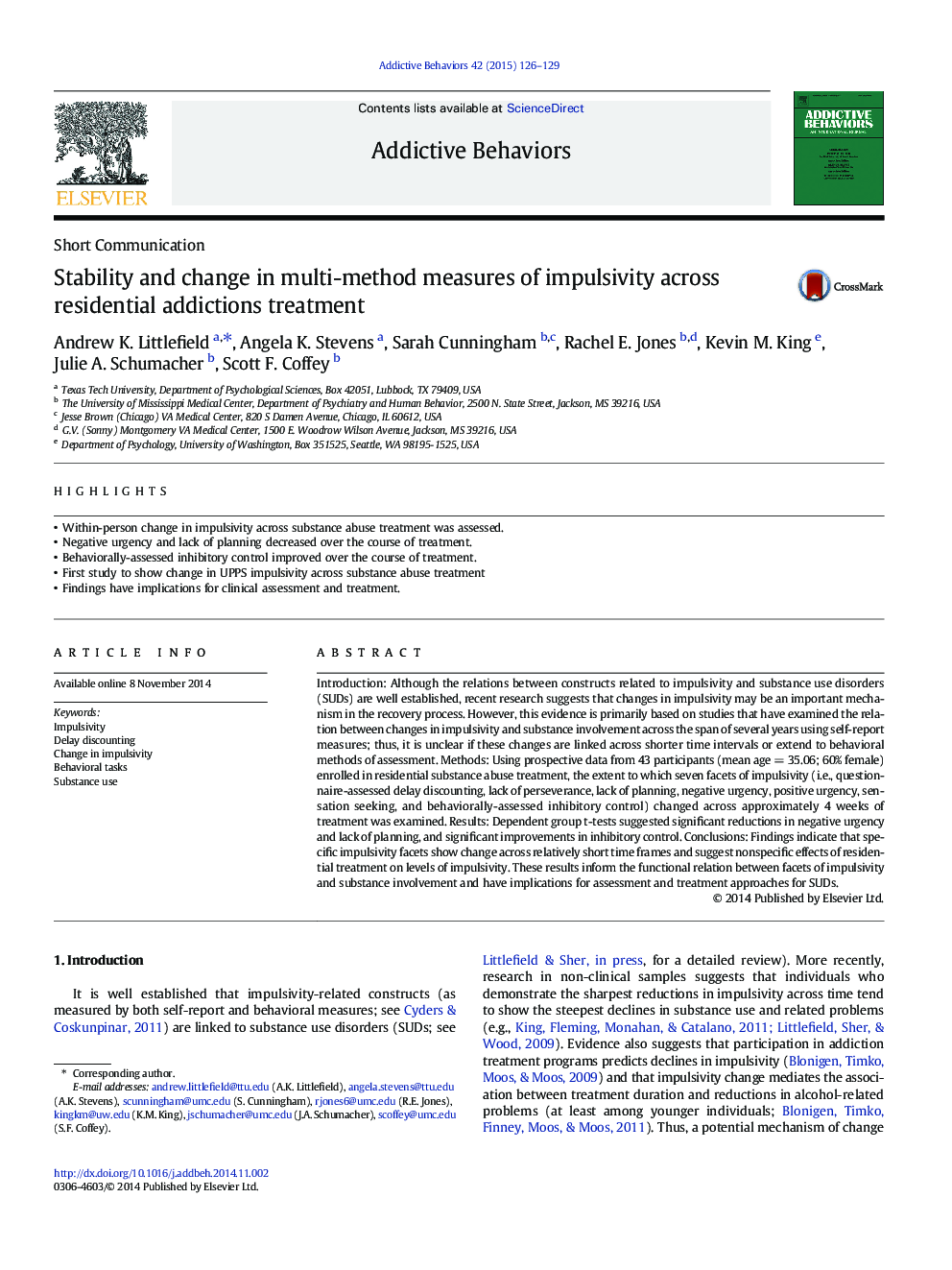| Article ID | Journal | Published Year | Pages | File Type |
|---|---|---|---|---|
| 7261081 | Addictive Behaviors | 2015 | 4 Pages |
Abstract
Introduction: Although the relations between constructs related to impulsivity and substance use disorders (SUDs) are well established, recent research suggests that changes in impulsivity may be an important mechanism in the recovery process. However, this evidence is primarily based on studies that have examined the relation between changes in impulsivity and substance involvement across the span of several years using self-report measures; thus, it is unclear if these changes are linked across shorter time intervals or extend to behavioral methods of assessment. Methods: Using prospective data from 43 participants (mean age = 35.06; 60% female) enrolled in residential substance abuse treatment, the extent to which seven facets of impulsivity (i.e., questionnaire-assessed delay discounting, lack of perseverance, lack of planning, negative urgency, positive urgency, sensation seeking, and behaviorally-assessed inhibitory control) changed across approximately 4 weeks of treatment was examined. Results: Dependent group t-tests suggested significant reductions in negative urgency and lack of planning, and significant improvements in inhibitory control. Conclusions: Findings indicate that specific impulsivity facets show change across relatively short time frames and suggest nonspecific effects of residential treatment on levels of impulsivity. These results inform the functional relation between facets of impulsivity and substance involvement and have implications for assessment and treatment approaches for SUDs.
Related Topics
Life Sciences
Neuroscience
Behavioral Neuroscience
Authors
Andrew K. Littlefield, Angela K. Stevens, Sarah Cunningham, Rachel E. Jones, Kevin M. King, Julie A. Schumacher, Scott F. Coffey,
